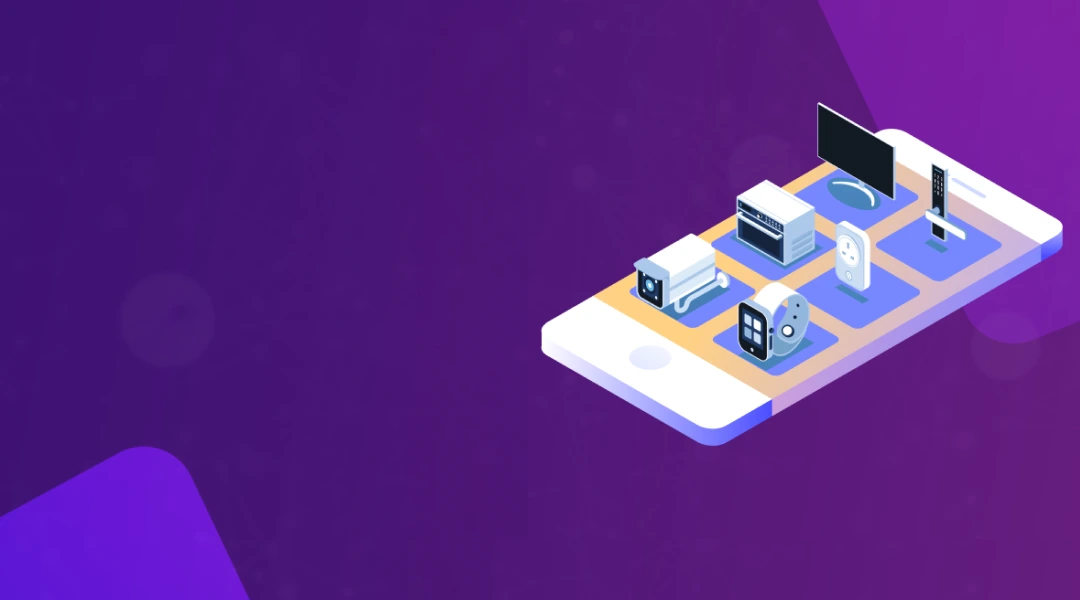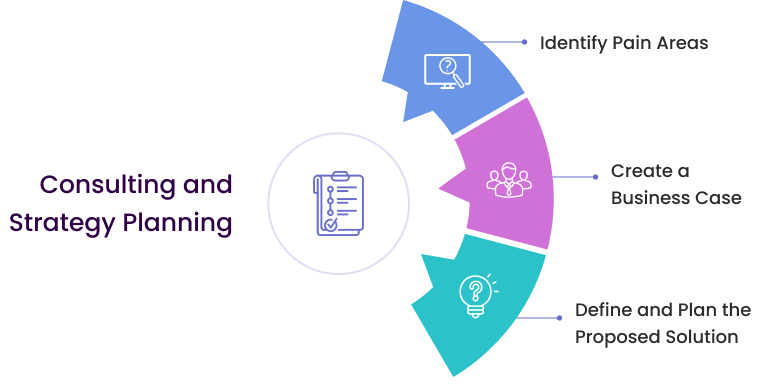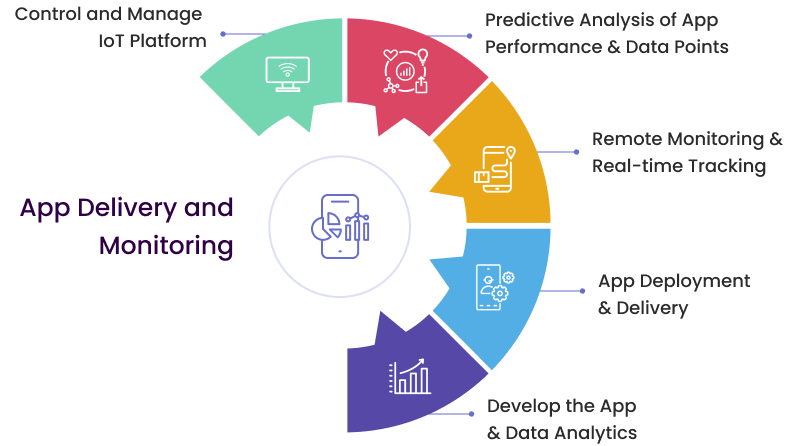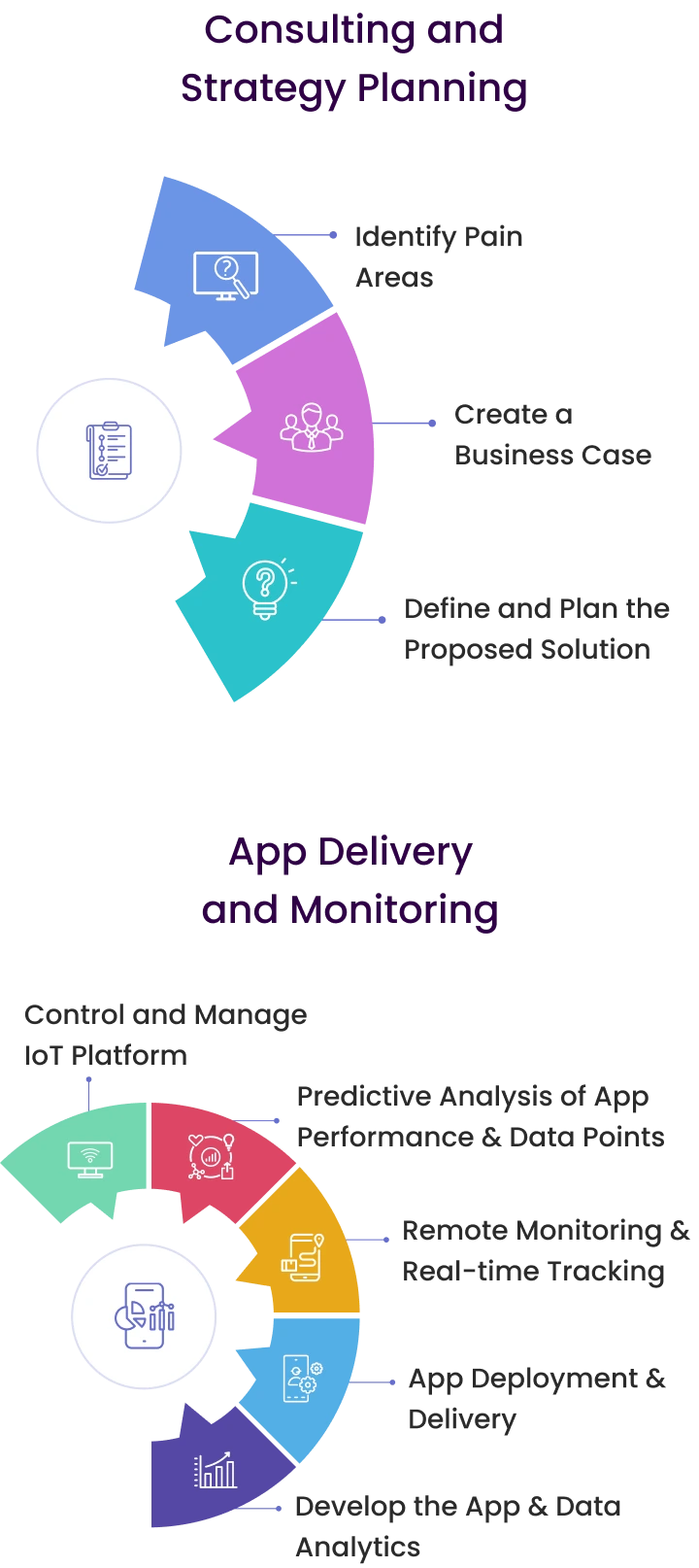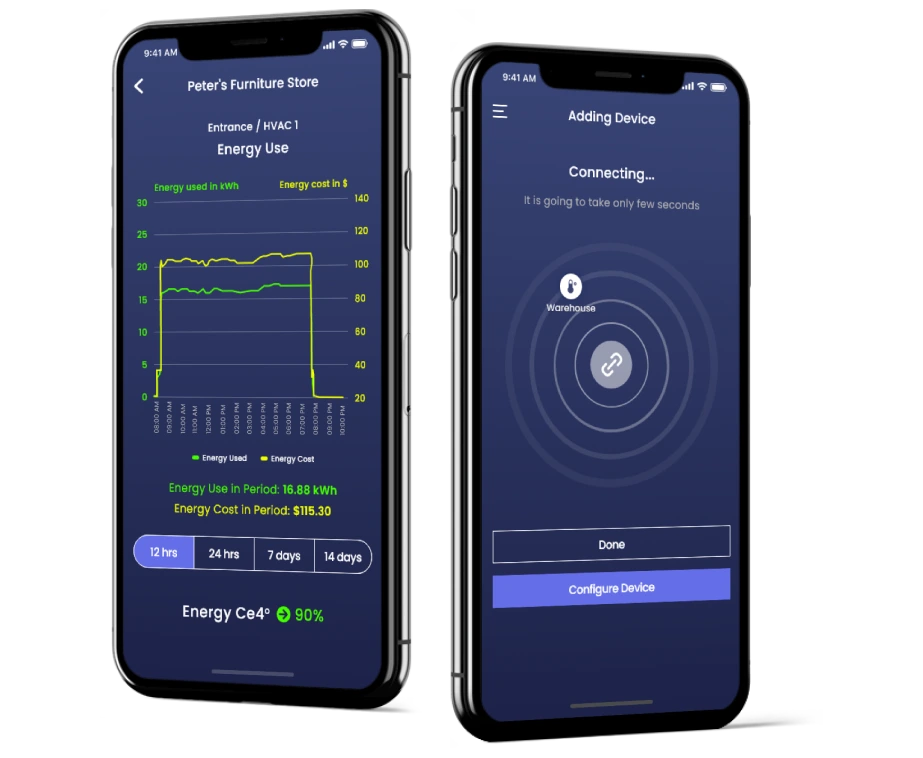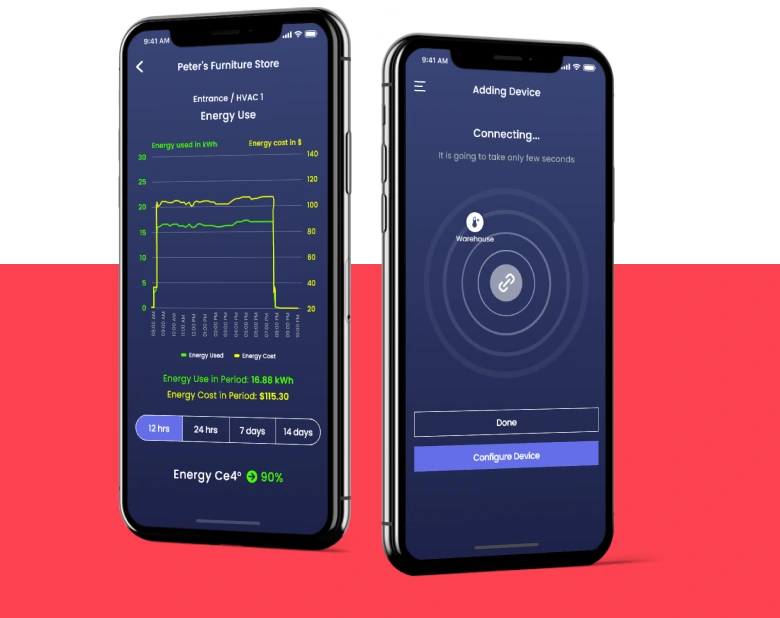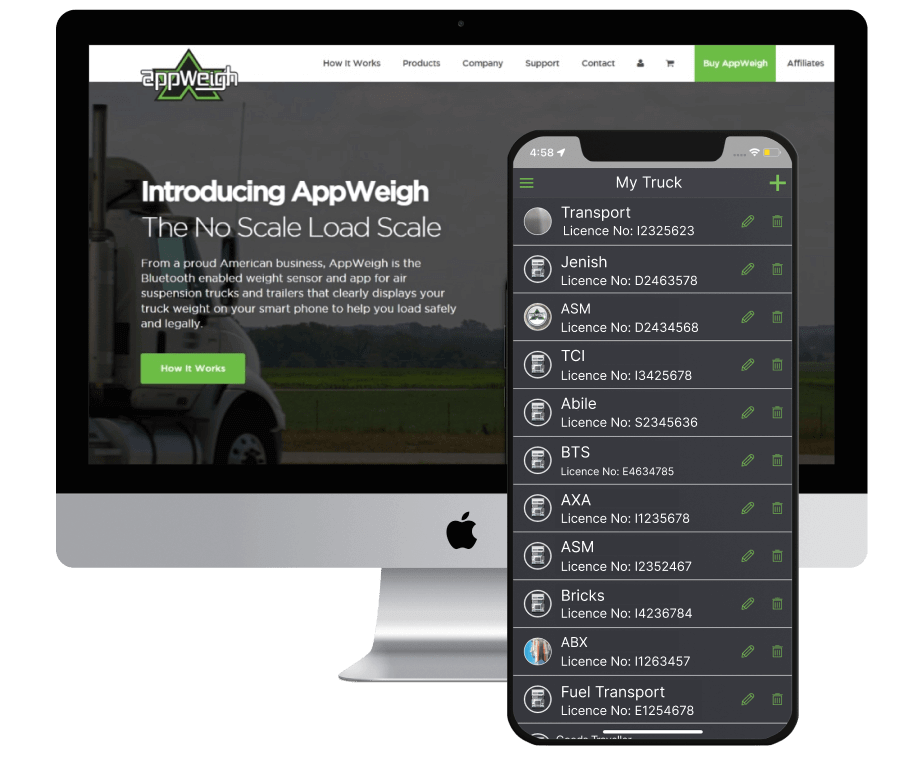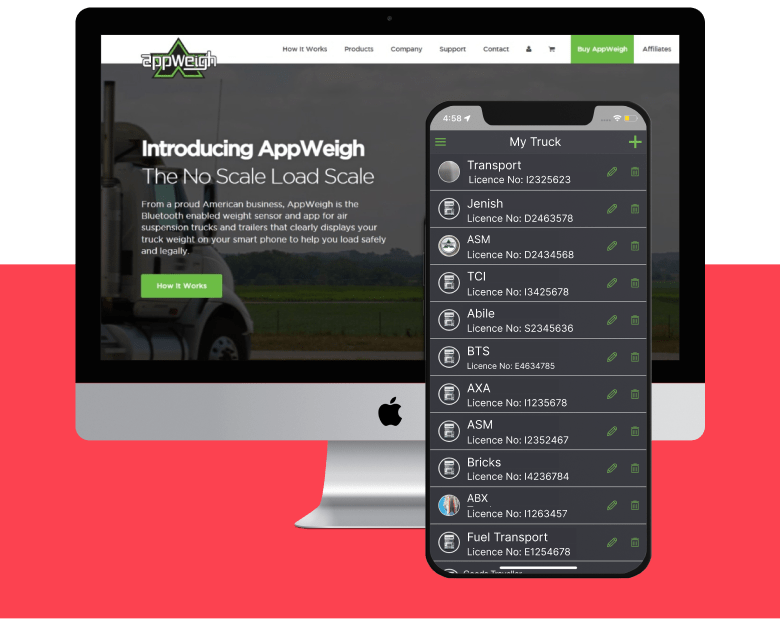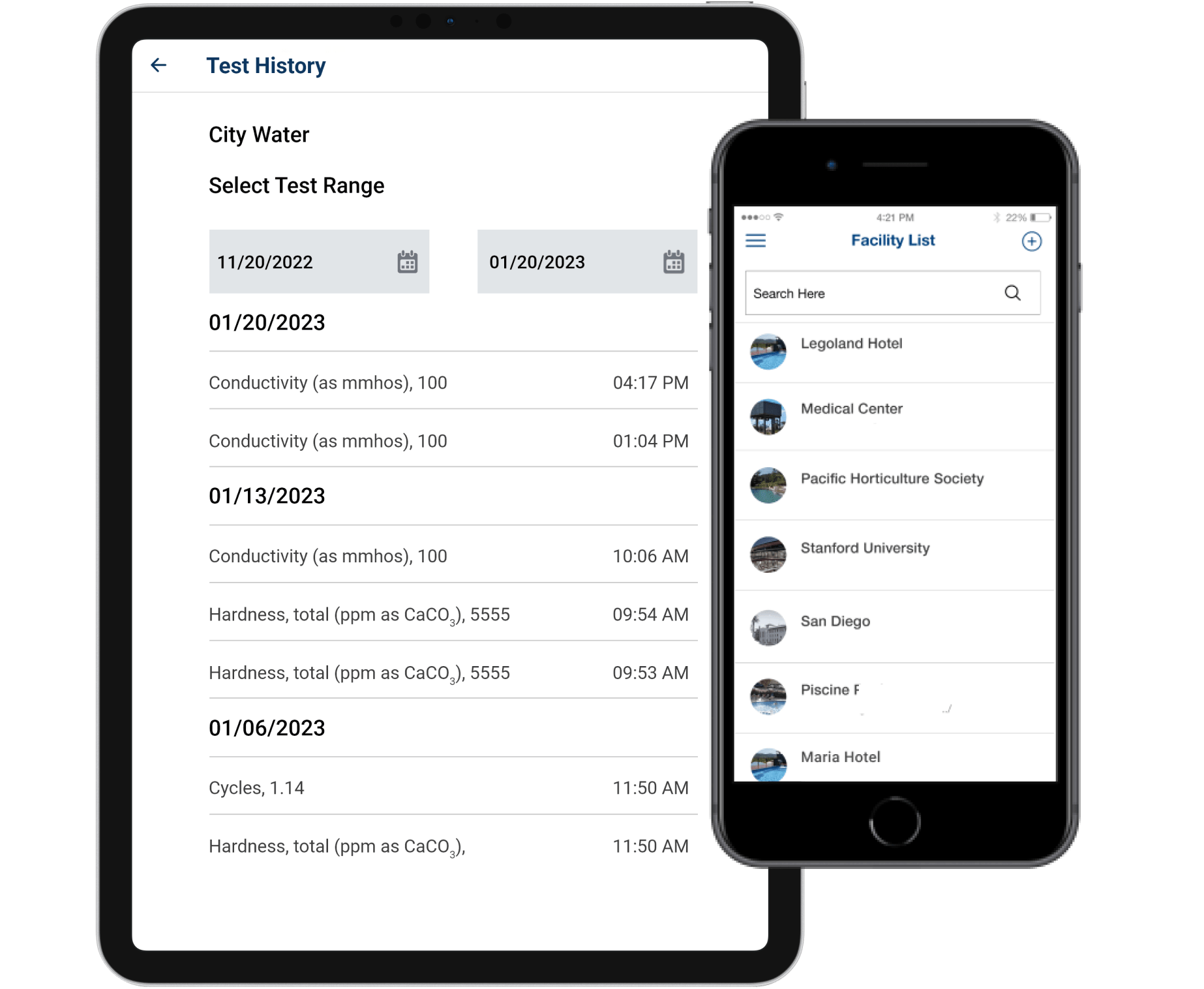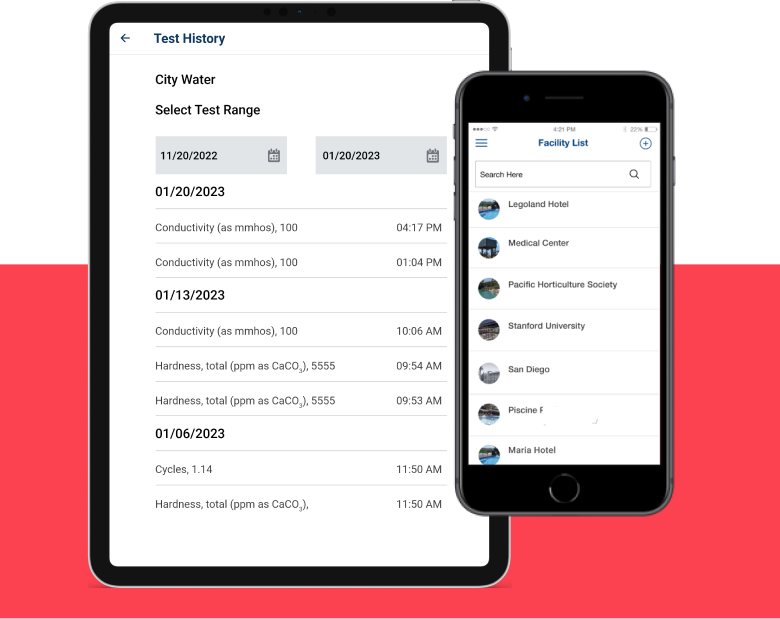IoT Powered Smart Apps- Merge the Digital and Physical World with our IoT App Development Services
IoT-driven Smart Apps are revolutionizing businesses in countless ways. Biz4Solutions is a leading IoT app development company and a one-stop solution for the creation of powerful Smart Apps that are insightful, contextual and proactive. Our robust Smart Apps take automation and connectivity to the next level. We have been at the forefront of creating powerful IoT software solutions that connect to various IoT-enabled devices like sensors, actuators, controllers, Bluetooth-enabled devices, wearables, communication hardware, NFC, iBeacon, Smart Watches, etc. Our Agile teams have been developing IoT-based software applications for more than 9 years now. We bring unparalleled expertise in providing customized IoT solutions and Smart App development services to diverse industrial sectors like transportation, healthcare, supply chain, manufacturing, retail, etc. So, partner with us and harness the power of the IoT and Smart Applications!
Key benefits of Smart Apps
IoT app development solutions have transformed several businesses around the world. They are the game-changers redefining the user experience in a far better way. Our expertise in IoT engineering and Smart App development services help you to connect, monitor, and control your devices, machines, and even operational processes. So what do these IoT-driven Smart Apps offer to you?

Improved connectivity and communication

Enhanced transparency in the processes
Real-time tracking and proactive monitoring of workflows

Elevated automation and control

Data collection and documentation

Smart analytics for informed decision-making

Enhanced safety and security

Considerable cost-cutting and profitability
Personalized User Experiences
Why Partner with Biz4Solutions for your Smart App Development Project?
As a global Smart App development company, Biz4Solutions delivers complex, and high-performing IoT solutions and Smart Apps for both- product and service-based companies. We work on a comprehensive system of tools and practices that ensure high productivity, the right cultural fit, quick turnaround time, and uncompromised quality of our IoT services. Backed by a unique balance of technical excellence, design thinking, product vision, and client collaboration, we are committed to giving our clients and their customers the best possible experience through our Smart Apps. Our smart apps services have enabled our clients to expedite operational efficiency and deliver unimaginable user experiences to their end customers.
Our Work Approach to Develop IoT Solutions
Have a Glance at our Enticing Success Stories
Optimize Your Business Efficiency with Our Smart App Development Services!
Frequently Asked Questions
Learn more about Smart Apps Development
What are Smart Apps?
A smart app is an application software that makes use of data dynamically to generate data-driven actionable insights that enhance the user experience and automate business processes. Smart apps gather humongous data from sensors and other data sources. Using sensor and location data, smart apps embed users’ preferences and actions into the smart devices available. With the help of advanced technologies like IoT, data analytics, and the predictive analysis mechanism, the software equates actionable insights into the experience of end users. These insights can be anything from automated estimates, personalized recommendations, or suggested next course of action to guide users. Smart apps users can remotely control and monitor objects and situations that was unthinkable otherwise.
What are the different types of IoT-based smart apps that you develop for clients?
We develop smart apps based on the niche and business goals of our clients. Here are some examples of IoT-based smart apps we can develop for you.
Wearable device apps and remote monitoring healthcare apps: Such apps track users’ health parameters and fitness outcomes. These apps collect vital parameters like blood pressure, heart rate, blood glucose levels, etc., and wellness metrics like steps covered, calorie intake, sleep quality, etc from the wearable devices and gives deep insights for various parameters.
Smart home and smart city apps: Smart home apps control and monitor home appliances like the thermostat, lights, security systems, etc. Users can centrally control home devices from any location. Smart city apps help in managing the urban infrastructure like public transportation, traffic, traffic management, parking lots, and public safety.
IoT automobile apps: These apps help users remotely monitor and control vehicles, drivers, etc. It’s helpful in the preventive maintenance of vehicles and smart car insurance procedures.
Energy Management Apps: These apps manage energy consumption and reduce energy wastage. Examples are smart meters, smart thermostats, etc.
Retail: Retail IoT apps offer a smart way to manage and track inventories and shipments in real time. A retailer can also generate actionable insights on customer analytics and provide personalized marketing experiences to consumers.
Agriculture IoT apps: Such smart applications optimize farming practices and boost the productivity of crops by monitoring environmental factors like soil moisture content, temperature, climatic conditions, etc. Precision farming, livestock monitoring, and greenhouse automation are some examples.
Wearable device apps and remote monitoring healthcare apps: Such apps track users’ health parameters and fitness outcomes. These apps collect vital parameters like blood pressure, heart rate, blood glucose levels, etc., and wellness metrics like steps covered, calorie intake, sleep quality, etc from the wearable devices and gives deep insights for various parameters.
Smart home and smart city apps: Smart home apps control and monitor home appliances like the thermostat, lights, security systems, etc. Users can centrally control home devices from any location. Smart city apps help in managing the urban infrastructure like public transportation, traffic, traffic management, parking lots, and public safety.
IoT automobile apps: These apps help users remotely monitor and control vehicles, drivers, etc. It’s helpful in the preventive maintenance of vehicles and smart car insurance procedures.
Energy Management Apps: These apps manage energy consumption and reduce energy wastage. Examples are smart meters, smart thermostats, etc.
Retail: Retail IoT apps offer a smart way to manage and track inventories and shipments in real time. A retailer can also generate actionable insights on customer analytics and provide personalized marketing experiences to consumers.
Agriculture IoT apps: Such smart applications optimize farming practices and boost the productivity of crops by monitoring environmental factors like soil moisture content, temperature, climatic conditions, etc. Precision farming, livestock monitoring, and greenhouse automation are some examples.
What are the basic building blocks of developing IoT-based Smart Apps?
Smart app development involves a multidisciplinary approach that includes software, hardware, and UX designing. To begin with, you need IoT platforms like Microsoft Azure IoT, Google Cloud IoT, or AWS IoT. You need to integrate sensors that will detect aspects like motion, temperature, humidity, etc. by collecting data from a physical environment. Communication protocols like MQTT, HTTP, and CoAP are needed to facilitate communication between IoT apps, devices, and Cloud platforms. Cloud computing is employed for processing and storing the data generated by IoT devices. Special attention needs to be paid to the UX design so that users can effectively interact with the IoT ecosystem.
How do you ensure the privacy and security of users’ data collected by smart apps?
We follow multiple safety protocols to ensure the privacy and security of user data handled by smart apps. We encrypt data being transmitted between the smart app and all the servers and use a Firewall to prevent cyber-attacks. For instance, we employ HSTS for protecting data against “packet sniffers.” The “server hardening” mechanism helps in preventing several other attacks. The various techniques for encrypting sensitive data include RSA, AES, and SSL.
We recommend that users create complex and unique passwords each time they create an account. We also employ two-factor authentication to add an extra layer of security. Once the app goes live, our maintenance team conducts regular security audits to identify security vulnerabilities (if any) and resolve bugs at once to prevent any security breach incidents.
We recommend that users create complex and unique passwords each time they create an account. We also employ two-factor authentication to add an extra layer of security. Once the app goes live, our maintenance team conducts regular security audits to identify security vulnerabilities (if any) and resolve bugs at once to prevent any security breach incidents.

 Skip to content
Skip to content


